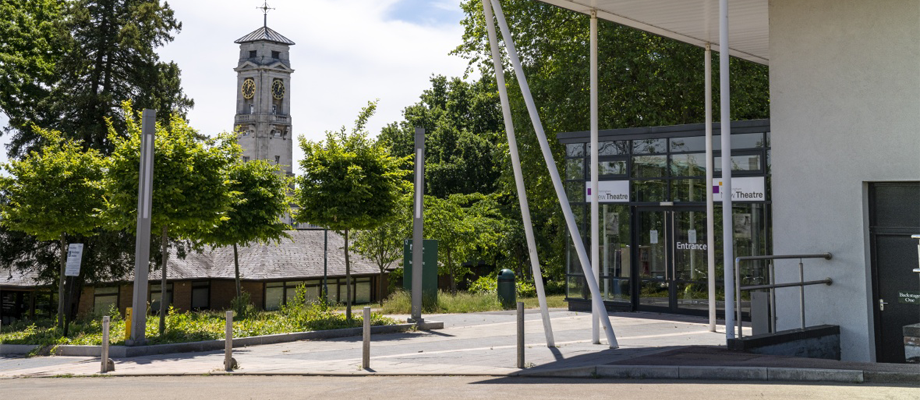
FAQs – Coronavirus and our finances
July 16th, 2020
Below are a number of common questions regarding the University’s financial standing that have come up frequently in roadshow meetings hosted by Margaret Monckton and Andy Long:
Does the University have as much liquidity as we should?
- Yes. The University has a revolving credit facility which is effectively pre-agreed debt that has not yet been drawn down. This facility is worth £80 million plus an overdraft facility of £15 million, creating £95 million headroom which we can access should we need. We have not drawn it down yet to avoid paying unnecessary interest on it.
Are we in a weaker position than other Russell Group universities?
- No, on the contrary, we are positioning ourselves to recover our finances more quickly than many universities in the critical years ahead. We have low levels of net debt versus other Russell Group universities which gives us the flexibility to borrow more as part of our plan for dealing with the impact of COVID-19. We also have lighter touch covenants to comply with, and can manage the impact of COVID-19 and still remain compliant with them.
Are losses really going to be as bad as predicted?
- Russell Group universities are all making similar planning assumptions and we believe that the impact for Nottingham next year will range between £150 million and £200 million. This is due to lost international recruitment, lost research income and lost commercial income and we will not know for sure how many UK students will join us in September or defer. This represents 20% of total income, which if modelled over 5 years, including this year, the total impact to the University in terms of lost income over that period will range from £450 million to £500 million.
- The 15% plans contribute £345 million over five years, and it is this coupled with a pause on investment and short term additional debt, that will help us meet this loss. The majority of savings are non-pay savings, with pay savings making up the smallest amount.
What is the University’s credit rating?
- Having performed a very detailed analysis of our plans and our forecasts, Standard & Poor have recently reconfirmed the University’s credit rating at A+ with a stable outlook. Indeed, their assessment said: “The University of Nottingham has improved its financial resources, putting it in a good position to weather COVID-19-related headwinds. The stable outlook reflects our expectation that the University will successfully achieve its identified cost savings, easing pressure on its financial resources.”
Interest rates are at a record low, why not simply borrow more money?
- We already have a manageable debt of £100 million and plan to borrow a maximum £60 million during this period, depending on the scale of losses in 2020/21.
- The financial impact of coronavirus will not be a short-term problem, so in order to remain sustainable as a University, we need to reduce our costs to match our reduced income.
- Debt still has to be serviced with interest payments, and significant debt would mean that money we want to invest in teaching or research becomes absorbed in interest repayments.
- Banks will only lend money if we can demonstrate we could maintain the interest payments and repay the debt – which brings us back to the need to bring our cost base down
Why not use the University’s reserves to tide us over?
- Simply put, this is a cash issue – the difference between what we want to spend and how much income we will generate. Reserves are not cash, they are net assets – our buildings and endowments for example – so for the most part, they are not easily cashable and of no help in the current situation.
- To use a domestic example. Add up the value of any property you own, a car and savings, then deduct any debts, eg a car loan or mortgage. The sum is the value of your net assets or ‘reserves.’
- Imagine you wanted to fund a career break, so you look at your net assets to see how much you can afford – you have some savings, could sell your car and are thinking about even extending your mortgage.
- However, some of your savings come from a legacy with ‘strings attached’ on how you can spend it, you cannot sell your car at the asking price and the bank says it will only extend your mortgage by 50% of what you need.
- So you are already restricted in how much cash you can access from savings, and how much and how quickly you could convert your physical assets like your home or car into cash. Can you still use your reserves to fund a career break?
Why not delay financial reductions until we know the actual scale of the impact?
- If we delay, there is a very real risk that we would have to impose sharper, more sudden measures or it will simply be too late to do anything about it and we run out of cash and can no longer operate.
- We will know our true position on our income at the end of the calendar year. If the impact is anywhere near as expected, it would be too late to empower budget holders to choose where to make the considered savings that we are making now.
Tags: FAQs, Financial FAQs
Comments are closed.
Other

Need news? See you on SharePoint
After 14 years of service, Campus News is being retired as the university’s staff news platform. […]

Roads and car parks closed for refurbishing work
As part of ongoing road improvements at the university, works will be taking place to resurface […]

